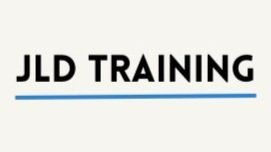Overhead Crane Training
Overhead crane training courses are designed to provide individuals with the skills and knowledge necessary to safely operate overhead cranes. Overhead cranes, also known as pendant, gantry and tower cranes , are used in various industries for lifting and moving heavy loads.
Course Content:
Introduction to Overhead Cranes:
Understanding the types, components, and features of overhead cranes, including the main hoist, trolley, bridge, and controls.
Safety Procedures:
Emphasising safety protocols specific to overhead crane operation, including load stability, proper lifting techniques, and awareness of surroundings.
Pre-Operational Checks:
Inspecting the overhead crane for any mechanical issues before operation, ensuring that all safety features, such as brakes and limit switches, are functioning correctly.
Basic Operation:
Training on the proper use of overhead crane controls, including lifting, lowering, horizontal movement, and precise positioning of loads.
Load Handling:
Techniques for lifting, transporting, and placing loads with precision and safety, considering the crane's load capacity and stability.
Load Attachment and Rigging:
Understanding the proper methods for attaching and rigging loads to the crane's hook or other lifting attachments.
Bridge and Trolley Movement:
Practices for maneuvering the crane's bridge and trolley, including traversing long distances and navigating obstacles.
Emergency Procedures:
Training on responding to emergencies, including load swing control, power failure protocols, and communication during critical situations.
Regulatory Compliance:
Understanding and compliance with relevant occupational health and safety regulations related to overhead crane operation.
Practical Training:
Hands-on Operation:
Participants typically have the opportunity for practical, hands-on training where they operate an overhead crane under the guidance of an instructor.
Load Handling Practice:
Practical sessions include scenarios involving lifting, transporting, and placing loads with precision, as well as responding to simulated emergency situations.
Certification:
Successful completion of the overhead crane training course may lead to the issuance of a certification or license, indicating that the individual is qualified to operate overhead cranes.
Duration:
The duration of overhead crane training courses can vary but generally cover both theoretical and practical aspects to ensure a comprehensive understanding of the equipment.
Overhead crane training is crucial for ensuring the safe and efficient operation of these lifting devices.


